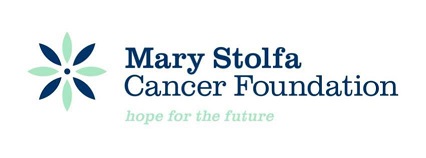| |
|
|
| |
Fatigue
Fatigue from cancer feels different then everyday life fatigue. Patients have explained it as total lack of energy, worn out, drained. It can last days, weeks or even months.
Possible Causes
- Stage of the disease you have. For instance if you have bone marrow involvement you'll be even more tired because your body will be unable to produce red blood cells necessary to carry oxygen throughout your body. If any other organs such as your heart or lungs have been effected, you may have trouble compensating for it and that may also tire you out.
- The process of cancer killing other cells and your body trying to rid itself of them, not to mention the energy your body uses to try and fight cancer cells.
- Dealing with pain can also be exhausting. Trying to forget about it or not getting adequate sleep at night because of it can cause you to be tired during the day.
- Stress. Stress is one of the leading causes of fatigue.
- Chemotherapy.
- Radiation.
- Surgery.
- Poor appetite. Your body not getting the proper nutrients it's lacking.
This along with many others can be contributing factors.
Managing Fatigue
- Consider getting a temporary handicap hang tag if you do a lot of walking that could be avoided.
- Have a friend or family member lend a hand with household chores. You can probably physically do it, but allow others to do some things for you that you normally do and save your energy for more important, enjoyable activities. This also allows you to spend more time with them. Share a cup of coffee or lunch over a basket of laundry. But let THEM do the folding!
- Take naps. Even once a day.
- Pace yourself and rest often. Allow extra time to get places and stop if you need to. Don't push yourself too hard.
- Rest BEFORE you're exhausted rather than after.
- Join a support group to help alleviate some of the stress in your life. Or try methods of relaxation such as meditation, prayer, yoga, guided imagery, visualization, etc. Take advantage of things you enjoy doing.
- Eat properly. It may be difficult, but try to eat as much foods rich in fruits and vegetables to get the nutrients your body needs. Try eating small amounts at a time, that may be helpful. But naturally, if you're unable to you're better off eating anything rather than nothing. Also, drink plenty of fluids.
- Limit the amount of caffeine and alcohol intake.
- Report any changes in energy level to your doctor or nurse.
The information on this website is provided for general information only. It is not intended as medical advice, and should not be relied upon as a substitute for consultations with qualified health professionals who are familiar with your individual medical needs. The MSCF disclaims all obligations and liabilities for damages arising from the use or attempted use of the information, including but not limited to direct, indirect, special, and consequential damages, attorneys' and experts' fees and court costs. Any use of the information will be at the risk of the user.
| Chemotherapy Side Effects | Tumor Markers-Grades/Prognosis | Cancer Clusters | Emotional Disorders | End of Life Issues | Loss, Grief, and Bereavement | Living with Cancer | Radiation Therapy | Support Groups |
| Return Home | Fundraisers | Donations | Wall of Honor | Stories of Hope | Information on Specific Cancers (A-M) | Cancer Issues | Contact Us | Site Index |
|
|
| |
|
|


